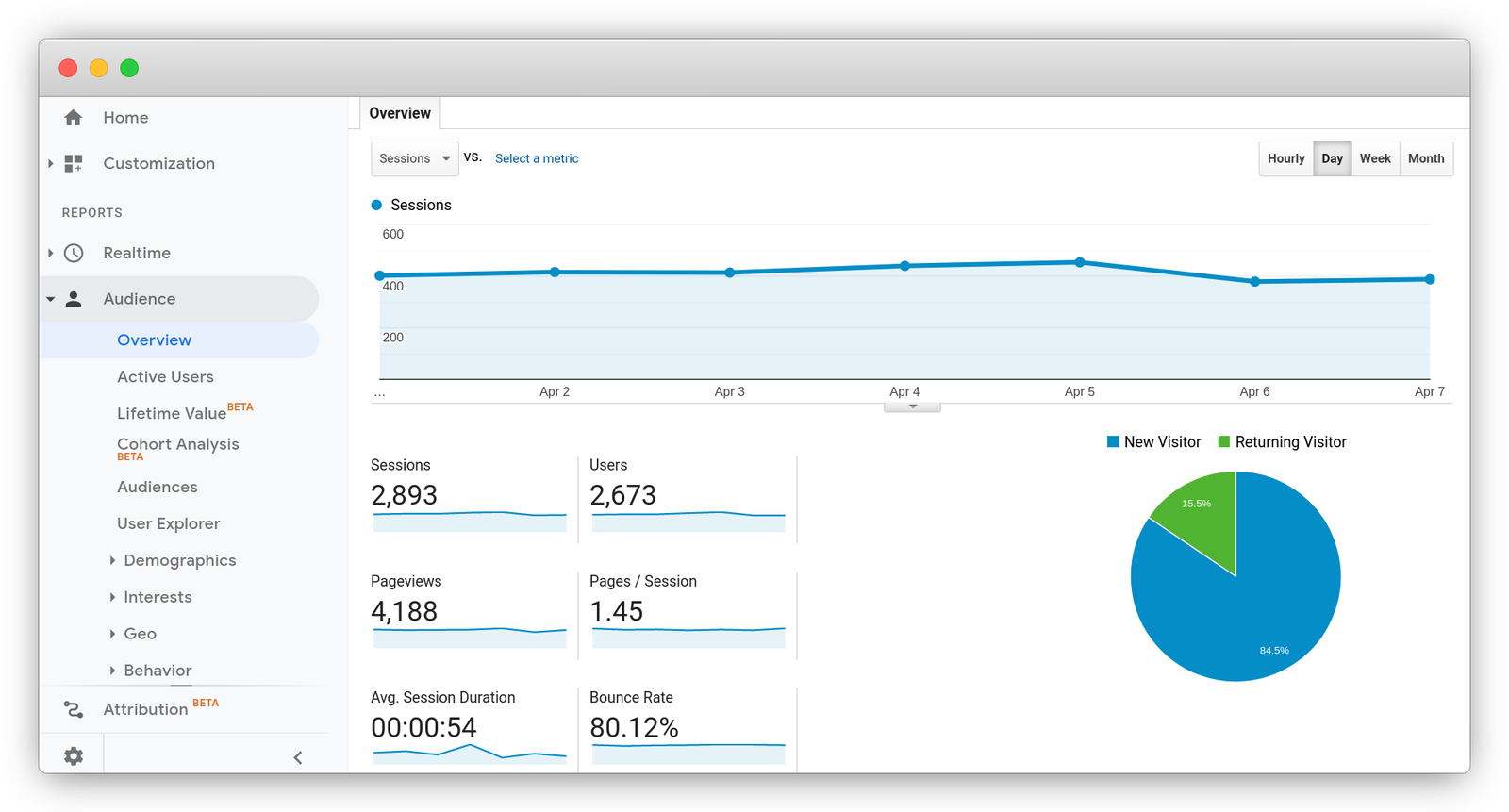Zesty Insights
Dive into the world of news and information with engaging articles.
Google Analytics: Your Website's Secret Stalker
Uncover the secrets of Google Analytics and see how it tracks your website's performance like a stealthy ninja!
Unlocking Insights: How Google Analytics Tracks Your Website Traffic
Google Analytics is an essential tool for anyone looking to understand and enhance their online presence. By tracking various metrics such as the number of visitors, bounce rates, and session durations, it provides valuable insights into how users interact with your website. This data is crucial for making informed decisions about your content strategy and marketing campaigns. For more in-depth information on how Google Analytics works, check out the official documentation.
The platform enables users to segment their audience based on demographics, location, and behavior, allowing for a tailored approach to user engagement. Additionally, with features like real-time tracking, webmasters can monitor live traffic and identify trends as they unfold. By leveraging these insights, website owners can optimize their performance and improve user experience. For a comprehensive guide on interpreting your analytics data, refer to this Google Analytics Academy course.

10 Key Metrics You Should Monitor in Google Analytics
Monitoring the right metrics in Google Analytics is crucial for understanding your website's performance and user behavior. Here are 10 key metrics that every website owner should keep an eye on:
- Sessions: This metric shows how many individual visits your site has received within a specific time frame. It's fundamental for measuring overall traffic.
- Users: Tracking the number of unique users visiting your site helps you understand your audience size more accurately.
- Bounce Rate: A high bounce rate might indicate that visitors are not finding what they expected. This metric can highlight the effectiveness of your landing pages.
- Average Session Duration: This tells you how long users are staying on your site, offering insights into engagement levels.
- Pages per Session: Understanding how many pages a user visits in one session helps gauge the depth of their engagement.
In addition to the above, it's essential to monitor some advanced metrics that can provide deeper insights into your audience's behavior. Try to consider the following metrics:
- Goal Conversion Rate: If you have set specific goals, this metric shows how well your site fulfills those goals.
- Traffic Sources: Knowing where your traffic is coming from (organic search, paid search, social media, etc.) helps you optimize your marketing efforts.
- Device Breakdown: As more users visit websites via mobile devices, understanding what devices your audience uses can guide your design strategy.
- Geographic Data: This metric provides insights into where your visitors are located, which can open up new opportunities for targeted marketing.
- User Flow: Analyzing the paths users take through your site can help identify any obstacles they face while navigating.
For a deeper dive into these metrics, check out resources from Google Analytics and Moz.
Is Google Analytics Watching You? Understanding User Privacy in Data Tracking
The question of whether Google Analytics is watching you often arises when discussing user privacy and data tracking online. Google Analytics collects a plethora of data about website visitors, including their geographic location, online behavior, and even the device they use to access a site. While this data can be immensely valuable for businesses looking to optimize their online presence, it also raises concerns about user privacy. It is essential for users to understand what data is being tracked and how it can be utilized.
Google has implemented several tools and features aimed at giving users control over their data. For instance, users can check their privacy settings in Google accounts to manage data collection preferences. Moreover, businesses using Google Analytics are encouraged to anonymize data and implement measures to ensure compliance with regulations like GDPR. Ultimately, understanding these tools helps in fostering a greater level of trust between users and website owners regarding data usage and tracking practices.